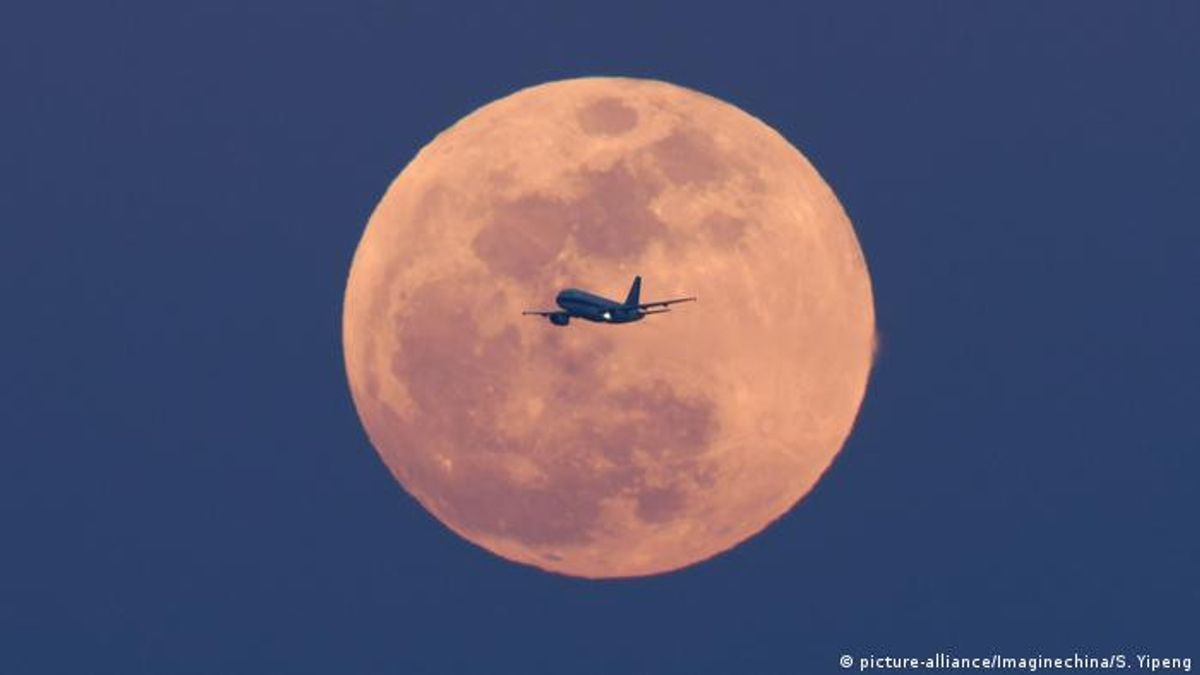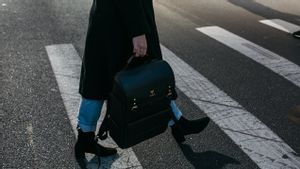JAKARTA - Currently, the COVID-19 variant, Omicron, is starting to have an effect on aviation in the world. Various airlines are forced to fly planes that are empty of passengers. In fact it's almost empty!
Low demand during this pandemic has made airlines often called ghost flights because of the lack of passengers. German airline, for example, Lufthansa has canceled 33,000 trips or 10 percent of its winter flights. The airline also only dispatched 18,000 flights with almost empty conditions.
However, this phenomenon still occurs today. Why? According to Paul Steele of the International Air Transport Association (IATA), there are still so many empty or near-empty planes crossing the horizon. Because the airline's schedule remains bound by contractual obligations to continue flying.

The reason airlines continue to operate these expensive ghost flights is because the industry is involved in risky slot games. Even when there are no passengers, airlines still protect their slots.
“Slots are a very valuable asset for airlines. Airlines that reduce the use of slots run the risk of losing. That is why the plane may still be in operation even when almost no one is flying on board. And that's why flight slots are like gold dust," he said.
Flights without passengers but still burning fuel on their ghost journeys became a familiar term in the early days of the pandemic and have continued to be maintained for the past two years.
According to Greenpeace's latest analysis, almost two years on, commercial planes still haunt the skies above us. In fact, more than 100,000 ghost flights will sail over European skies this winter.
CO2 Equivalent of 1.4 Million CarsAccording to Greenpeace, the climate damage caused by this empty flight is equivalent to the annual emissions of more than 1.4 million cars. Greenpeace estimates that the total number of European ghost flights will produce 2.1 million tonnes of CO2.
The analysis has sparked a wave of anger. Campaigner Greta Thunberg confirmed that Brussels Airlines (part of the Lufthansa group) had 3,000 unnecessary flights to maintain airport slots. Greenpeace's figures come from a December interview with Lufthansa CEO Carsten Spohr.
In the UK a petition was launched, asking the government to stop uninhabited flights. The aviation industry pledged at the annual meeting of the International Air Transport Association (IATA) to achieve zero carbon emissions by 2050.

“Several airlines claim they are forced to run high volumes of empty flights in order to retain the right to use airport slots. There is absolutely no reason why this should be true," said Olivier Jankovec, director general of EUROPE's Airports Council International (ACI) airport trade agency, in a press release.
"Talk about ghost flight, and its environmental impact, seems to hint at an apocalypse scenario that has no place in reality. Let's stick to the important task of restoring and rebuilding together," he said.
And a number of airlines are still flying empty planes, keeping seats warm for an industry that won't fully return until the COVID-19 pandemic is completely over.
The English, Chinese, Japanese, Arabic, and French versions are automatically generated by the AI. So there may still be inaccuracies in translating, please always see Indonesian as our main language. (system supported by DigitalSiber.id)








